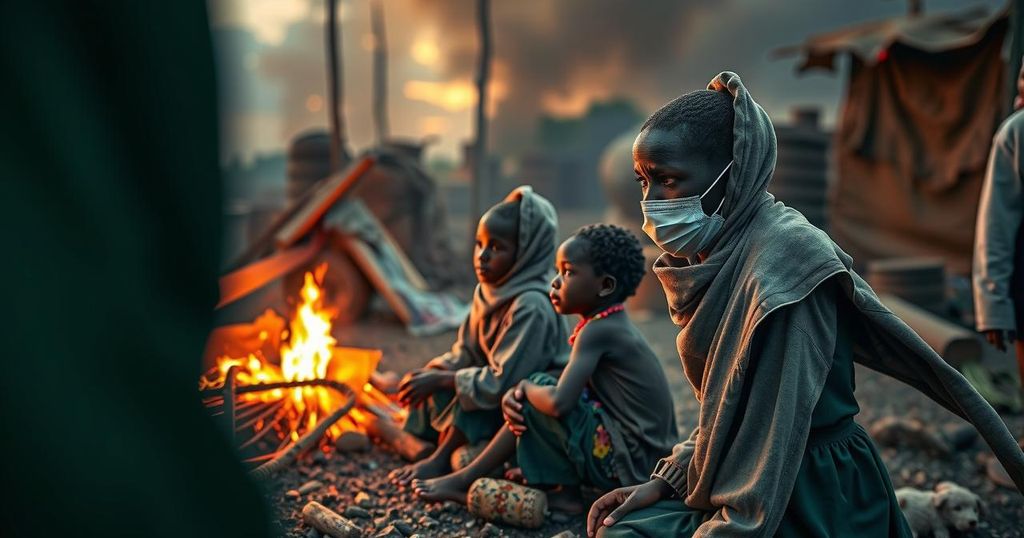Sudan Faces Acute Humanitarian Crisis as Cholera and Dengue Fever Surge Amid War

Sudan is facing a severe humanitarian crisis as cholera and dengue fever cases surge amid ongoing conflict. Over 28,000 cholera cases have been reported, with health services largely collapsed and 80% of healthcare facilities non-operational. The crisis is compounded by rising hunger levels and continued violence, calling for urgent global intervention to address the multifaceted challenges confronting the nation.
The ongoing conflict in Sudan has exacerbated a dire humanitarian crisis, resulting in surging cases of cholera and dengue fever amid rising levels of hunger that exceed famine thresholds. The UN Office for the Coordination of Humanitarian Affairs (OCHA) reported over 28,000 cholera cases and 836 deaths across 11 states from July 22 to October 28. This alarming rise in disease coincides with a healthcare system near collapse, leaving the population vulnerable.
The cholera outbreak has intensified following heavy rains that polluted water sources, particularly impacting Kassala state, which recorded the highest number of cases. Dengue fever has also risen significantly in Kassala and Khartoum, with thousands affected and multiple fatalities. In response, health authorities declared a new wave of cholera, prompting vaccination efforts targeting 1.4 million individuals in the worst-affected regions.
Compounding the crisis, armed conflict has led to severe blockades restricting humanitarian aid to those in acute need. Reports indicate that hunger levels have reached alarming proportions, with severe malnutrition reported in displacement camps. Attacks on healthcare facilities have significantly hindered medical services, leaving approximately 80 percent of health facilities in conflict zones non-functional.
The pandemic of violence has affected numerous healthcare professionals and facilities, with critical incidents of violent attacks on hospitals leading to numerous casualties. Humanitarian organizations continue to strive for effective responses, but substantial challenges remain, necessitating urgent international assistance to address the multifaceted crisis in Sudan.
Sudan has been embroiled in conflict since April 2023, leading to widespread devastation across its towns and cities. The warfare has dismantled the existing healthcare infrastructure, prompting widespread health concerns, including cholera and dengue fever outbreaks. The heavy rains and resultant flooding have further complicated the situation, contaminating water supplies and heightening disease transmission risks, while food insecurity continues to pose a significant threat to the population.
The humanitarian crisis in Sudan is marked by a critical surge in cholera and dengue fever cases coupled with alarming rates of malnutrition and hunger. With 80 percent of health facilities closed due to conflict, and ongoing violence adversely affecting humanitarian efforts, the situation requires immediate global attention. Health officials and humanitarian organizations are racing against time to provide vaccines and essential supplies, yet the worsening conditions suggest that without sufficient support, the crisis may deepen significantly.
Original Source: news.un.org






